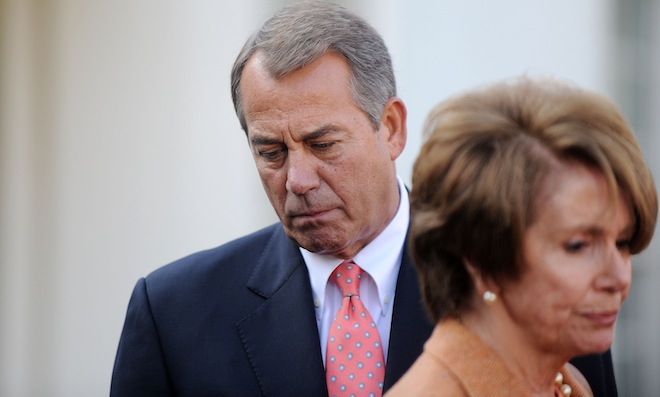House Republicans contain multitudes. But in a way the story of their majority is about the deterioration of the relationship between the conference’s right-most faction and the rest of the party — and thus of the slow erosion of the party’s influence over major policy.
This goes back to the early days of 2011, when House leaders would round up 218 Republican votes for big-deal bills, and use them as opening bids in negotiations with the White House and the Senate. They shifted the political center of gravity way to the right, such that even after Democrats made their demands heard, important bills would ultimately pass both chambers with the support of a majority of Republicans. If Democrats wanted to avoid a government shutdown, they had to be willing to accept legislation that was Hastert Rule compliant. That was pretty remarkable, considering the Republicans only controlled the House.
But the right-hard right alliance started showing signs of instability almost immediately.
At crunch time, conservatives would withhold support for consensus Republican bills, embarrass the leadership, and demand so many wish list items in return for their votes that getting to 218 without any Democratic help became either impossible or produced laughable legislative results.
That erosion continued through the election. And now, with their majority diminished but the right just as, if not more, fractious than they were last year, Republicans can no longer count on their internal cohesion allowing them to set the terms of legislative debates. At times — particularly when action is required — it’s as if there’s a Democratic Party, a Republican Party, and a Tea Party; and the only coalition sturdy enough to reliably avoid crises is one comprised overwhelmingly of Democrats along with a few dozen Republicans.
That’s how the fiscal cliff bill passed. That’s how the supplemental approps for Sandy victims cleared the House yesterday. And more and more it appears as if that’s how the debt limit will ultimately be increased. It sounds strange given how fiercely Republicans have fought President Obama for the past four years, but we seem to have reached a point where an uncomfortable center-left coalition governs the country when Congress must act. If that dynamic holds, then the big question for Obama’s second term is, What happens when action is optional?








